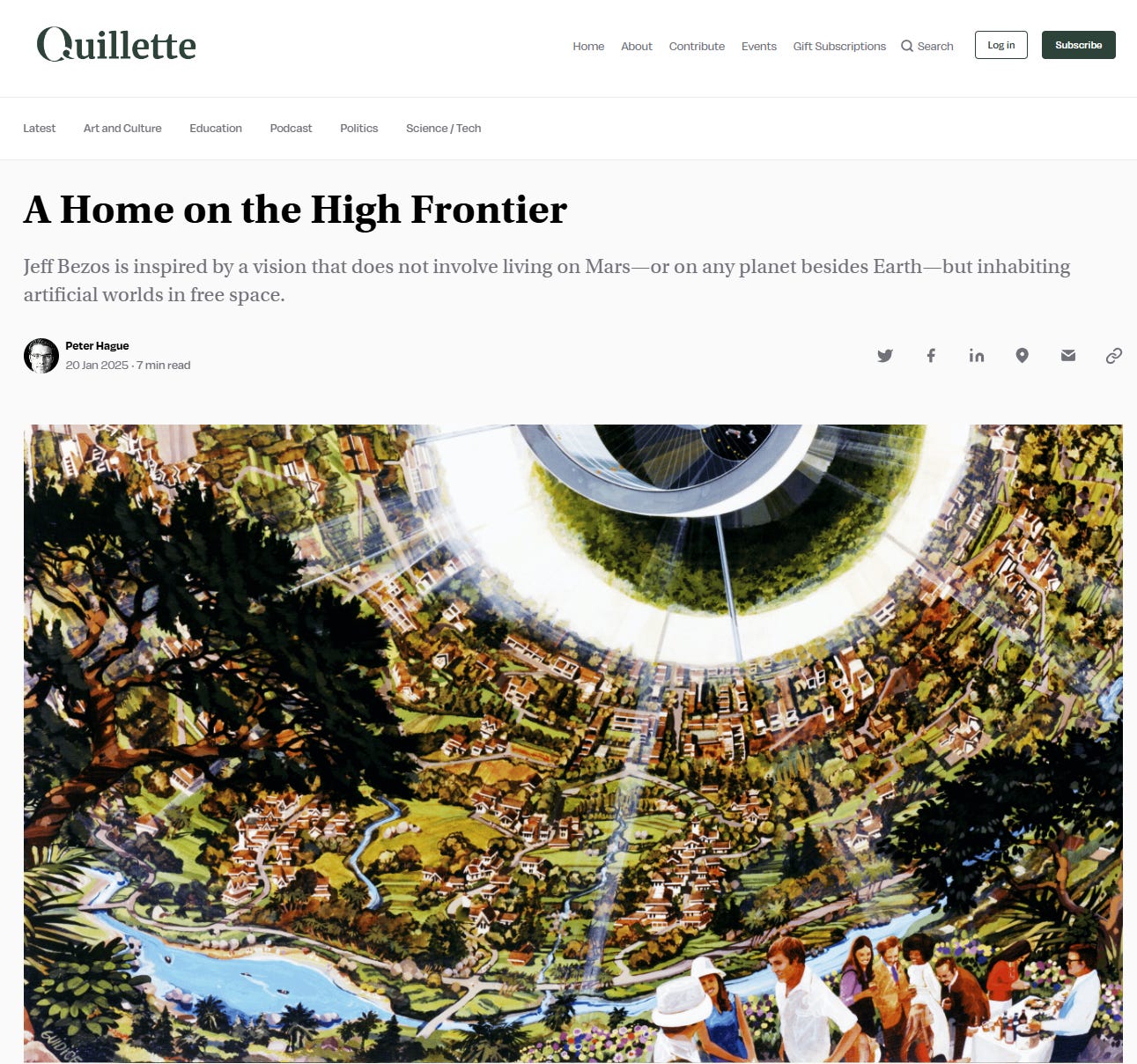Evangelising O'Neill
I'm raising public awareness of another path to space
For the occasion of the first New Glenn flight, I’ve written an article for Quillette magazine, aimed at a general audience, explaining the motivating vision behind Jeff Bezos’ company. You can read it here, and please share it with people who might not be interested in space colonisation.
My motivation was to try and put the ideas of free space colonie…



